Coronavirus variants and what you need to know about them
Since first emerging in late 2019 in China, Covid-19 has developed numerous variants, named for the places they first appeared. Here’s what you need to know.

News
Don't miss out on the headlines from News. Followed categories will be added to My News.
Vietnam is the latest country to have discovered a new Covid-19 variant which spreads quickly by air and is a combination of the Indian and British strains.
Almost 7,000 cases have been reported in Vietnam, mostly since April.
“We have discovered a new hybrid variant from the Indian and the UK strains,” Health Minister Nguyen Thanh Long told a national meeting on the pandemic on Saturday, local time, according to state media.
This latest development raises concerns about the infinite reproducibility of the virus and whether or not vaccines will maintain their effectiveness against the ever-emerging mutations.
VIETNAM VARIANT
The chief characteristic of the Vietnamese strain is that it spreads quickly in the air. “The concentration of virus in the throat fluid increases rapidly and spreads very strongly to the surrounding environment,” said Health Minister Nguyen Thanh Long.
Vietnam’s Central Institute of Hygiene and Epidemiology said in a statement on Saturday, local time, that its scientists had detected gene mutations in four out of 32 patient samples through gene sequencing.
Complexly, the May 2021 coronavirus variant is a combination of an Indian variant with mutations that originally belong to the UK variant.
There were previously seven known coronavirus variants in Vietnam before Long’s announcement, according to the Ministry of Health.
As of 30 May 2021, Vietnam recorded at least ten coronavirus strains, including the new strain discovered in the country.

THAI VARIANT
In Thailand, the government on Saturday, local time, took exception to media reports in Britain that labelled a new strain causing concern there as the “Thai variant”.
The strain was first detected in Thailand in a 33-year-old Egyptian traveller, UK health authorities said, and 109 cases have since been found in Britain.
“Principally speaking, it should not be called the Thai variant because the infected person is from overseas,” said Opas Kankawinpong, head of Thailand’s disease control department.
A new mutant strain of the coronavirus that first emerged in Thailand has reportedly led to over a hundred cases in the UK where health authorities are already grappling with infections from the Indian variant.
British health officials confirmed on Thursday, local time, that 109 cases of the new variant have been found in the UK, but it is not yet known if the strain is more infectious or dangerous than the existing ones.
The variant, coded C.36.3, has been categorised as a “variant under investigation” on 24 May on the basis of the mutation profile and increased importation from a widening international area.
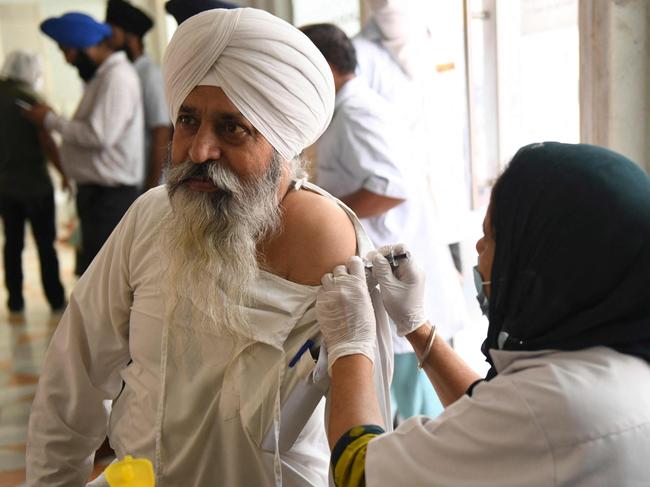
INDIAN VARIANT
In October 2020, a new variant was discovered in India and by May 2021 it had been detected in about 53 countries and on all continents except Antarctica.
The World Health Organisation (WHO) has said the variant has now officially spread to 60 territories.
It has been blamed for much of a devastating Covid-19 wave that has battered South Asian nations in recent weeks.
In an interview with AFP, WHO regional director for Europe Hans Kluge said the increased contagiousness of the new variants, including the Indian one, was one of his main worries.
“We know for example that the B. 1617 (Indian variant) is more transmissible than the B. 117 (British variant), which already was more transmissible than the previous strain,” the Belgian doctor said.
This variant has spike mutations which may cause it to easily avoid antibodies.

UK VARIANT
First detected in October 2020 from a sample taken the previous month in Kent, the UK variant correlated with a significant increase in the rate of Covid-19 infection in the United Kingdom, effectively causing the second wave of the pandemic there.
Research indicated that this variant had an increased transmissibility and was more fatal.
As of May 2021, Lineage B.1.1.7 has been detected in around 120 countries.
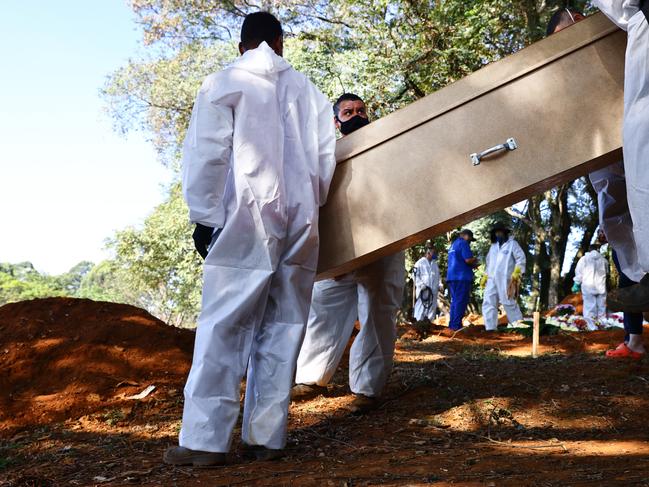
BRAZILIAN VARIANT
First detected in Tokyo on 6 January 2021 by the National Institute of Infectious Diseases in four people who arrived from the Brazilian Amazonas.
A separate Brazilian study identified another sub-lineage of this variant, circulating in the state of Rio de Janeiro.
A study found that the original Brazilian variant (P. 1 lineage) infections can produce nearly ten times more viral load compared to persons infected by one of the other Brazilian lineages. The original Brazilian variant also had a higher transmissibility and was more successful at infecting younger humans of both genders.
A study of samples collected in Brazil Manaus between November 2020 and January 2021, indicated the P. 1 lineage to be twice as transmissible and capable of evading 25–61 per cent of inherited immunity from previous coronavirus diseases, leading to the possibility of reinfection after recovery.
Infections were also found to be up to 80 per cent more lethal.
SOUTH AFRICAN VARIANT
On 18 December 2020, the variant was first detected in South Africa and reported by the country’s health department.
Researchers and officials noted that the variant was more prevalent among young people who had no underlying health conditions, and caused more serious illness.
The South African health department reported that the variant may have driven the second wave of the pandemic in the country due to the variant spreading more rapidly than the earlier variants of Covid-19. at a more rapid pace than other earlier variants of the virus.
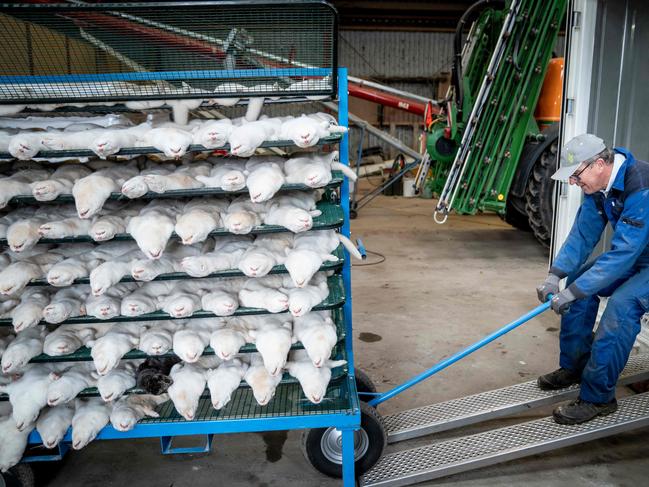
VARIANTS THAT WENT AWAY
The Californian variant was first observed in July 2020 by researchers at the Cedars-Sinai Medical Centre in California, but numbers remained very low until January 2021 when the variant accounted for 50 per cent of samples.
The variant has been detected at varying frequencies in most US states, in Europe, Asia and Australia.
Its frequency of transmission dropped as it was outpaced by the more transmissible UK variant.
The Californian variant is now a minority of cases.
In early November 2020, a variant known as Cluster 5 was found in Denmark that is believed to have been spread from mink farms to humans.
The mink population in Denmark was culled to prevent the spread of this mutation and reduce the risk of new mutations occurring.
A lockdown and travel restrictions were also introduced but by November 2020, 214 mink-related human cases had been detected.
The World Health Organisation (WHO) reported that cluster 5 has a “moderately decreased sensitivity to neutralising antibodies” and authorities warned that the mutation could reduce the effect of Covid-19 vaccines then under development.
As of 1 February 2021, scientists believed the variant was no longer in circulation in the human population.
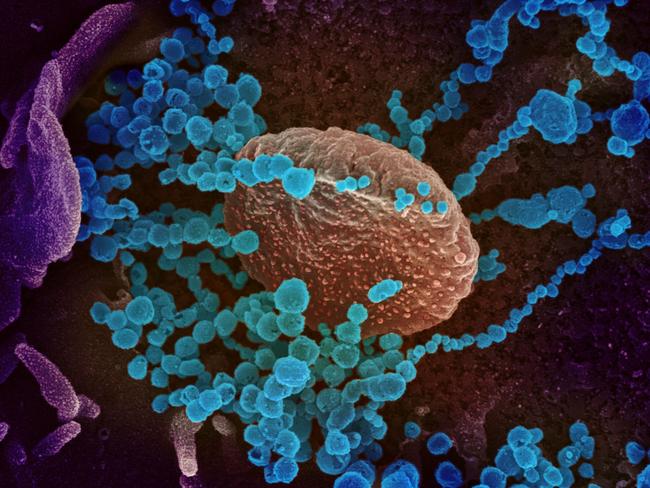
WHAT MAKES MUTANT VARIANTS MORE AGGRESSIVE
Scientists have noted that the hybrid strains contain several mutations that allow the mutant variant to attach more easily to human cells because of mutations in the receptor-binding domain in the spike glycoprotein of the virus.
VACCINE EFFECTIVENESS AGAINST STRAINS
Several official reports have suggested that at the beginning of their life, mutant variants are stronger and may evade vaccine effectiveness.
Most recently, the Pfizer vaccine has been proven to be slightly less effective but appears to still protect against the more transmissible Indian strain of the virus, according to a study by France’s Pasteur Institute.
“Despite slightly diminished efficacy, the Pfizer vaccine probably protects” against the Indian variant, according to laboratory test results, said Olivier Schwartz, the institute’s director and co-author of the study that was published on the BioRxiv website ahead of peer review.
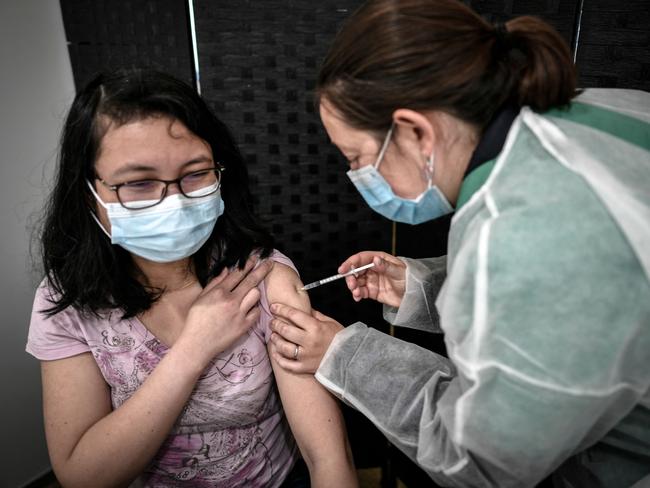
The study sampled 28 healthcare workers in the city of Orleans. Sixteen of them had received two doses of the Pfizer vaccine, while 12 had received one dose of the AstraZeneca vaccine.
People who had received two doses of Pfizer saw a three-fold reduction in their antibodies against the Indian variant, according to the study, but were still protected.
“The situation was different with the AstraZeneca vaccine, which induced particularly low levels of antibodies neutralising” the Indian variant, the study said.
Patients who had had Covid-19 within the past year and people vaccinated with two doses of Pfizer retained enough antibodies to be protected against the Indian variant, but three to six times less antibodies than against the UK variant, Schwartz said.
The study shows that “this variant … has acquired partial resistance to antibodies,” Schwartz said.
A study found that people fully vaccinated with Pfizer or Moderna have significantly decreased neutralisation effect against the Brazilian variant P. 1, although the actual impact on the course of the disease is uncertain.
Preliminary data from two studies indicate that the Oxford – AstraZeneca vaccine is effective against the Brazilian P. 1 variant, although the exact level of efficacy has not yet been released.
More Coverage
Originally published as Coronavirus variants and what you need to know about them





